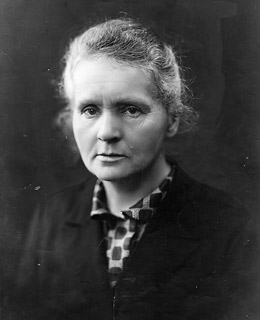
Marie Curie was the first female professor at the Sorbonne and the first female Nobel laureate ever; together with her husband, physicist Pierre Curie, she was awarded half of the Nobel Prize in Physics in 1903 for their work in spontaneous radiation (the other half went to Henri Becquerel for discovering it). She was also the only person to ever receive two Nobels in two different scientific categories — she won the Nobel Prize in Chemistry in 1911, also for her work in radioactivity.
Curie was serene, dignified, dedicated. Albert Einstein is said to have remarked that Curie, "of all celebrated beings, [is] the only one whom fame has not corrupted." She spent her winnings the way you'd expect, by pouring it into further research. The payoffs were many and varied, including an unprecedented and unrepeated string of Nobels won by one family: In addition to the prize Pierre shared in 1903, Marie's daughter, Irène Joliot-Curie, and her husband, Frédéric Joliot-Curie, won the Nobel Prize in Chemistry in 1935 for their discovery of artificial radioactivity. The downsides were also great. Marie's work with radioactive elements inflicted serious burns to her arms and hands — and perhaps triggered the leukemia that killed her at age 58. — R.F.